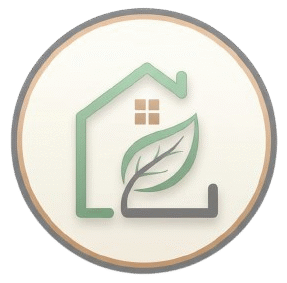In today’s digital age, where communication revolves around mobile phones, emails, and instant messaging apps, strange or unknown numbers like 7345633258 often spark curiosity. Many people encounter such numbers on their call logs, messages, or even on various online platforms. Some dismiss them as random spam, while others search to uncover their origin.
This article provides a complete explanation of what 7345633258 might mean, why people search for it, and how to deal with mysterious numbers effectively. By the end, you will not only understand the possible background of this number but also gain valuable insights into how to approach such situations with caution.
Why Do Numbers Like 7345633258 Attract Attention?
When a number like 7345633258 pops up, it naturally triggers curiosity. The reasons can vary:
-
Missed Calls from Unknown Numbers
You might have received a missed call from 7345633258, leaving you wondering whether to call back or ignore it. -
Text Messages or OTPs
Sometimes, numbers like these are linked to verification codes, bank OTPs, or automated systems. -
Potential Scams or Spam
Telemarketing companies and scammers often use random numbers to target people. Searching online for 7345633258 is a way to ensure safety. -
Search Engine Curiosity
Many people type numbers like 7345633258 into search engines, hoping to find user reports or explanations about them.
Possible Explanations for 7345633258
To understand numbers like this, we need to consider a few common scenarios.
1. Telemarketing or Promotional Call
Companies often use automated dialing systems to promote services or products. If you see 7345633258 repeatedly, it might belong to a telemarketer trying to pitch a scheme, insurance plan, or loan.
2. Robocalls and Automated Alerts
Robocalls are pre-recorded messages sent from computer systems. Many users report receiving such calls about lottery schemes, fake IRS warnings, or “limited-time offers.”
3. Phishing and Scam Attempts
In the age of cybercrime, scammers often use phone numbers like 7345633258 to impersonate banks, government institutions, or courier companies. Their goal is usually to extract personal details.
4. Personal or Regional Connection
Sometimes, the number may belong to a genuine individual from a different state or region. If you have friends, family, or professional links across cities, it could simply be a legitimate call.
5. Service Notifications
Some numbers are linked to online services or apps that send reminders, OTPs, or promotional messages. If you recently signed up for something, 7345633258 could be tied to that activity.
How to Identify 7345633258 Safely
Before jumping to conclusions, it’s important to verify the authenticity of numbers like 7345633258. Here are practical steps you can follow:
-
Search Online
Many community-driven websites maintain caller databases. Searching for 7345633258 might reveal reports from other users about whether it’s spam or genuine. -
Use Caller ID Apps
Apps like Truecaller can identify most unknown numbers. If 7345633258 is a registered spam number, these apps will flag it. -
Check with Your Network Provider
Telecom companies sometimes block spam numbers. Contacting your provider can confirm whether 7345633258 is reported as fraudulent. -
Avoid Calling Back Immediately
Scammers often use “one-ring scams” where they call and disconnect quickly. When you call back, you might be charged high international rates.
Risks of Ignoring Numbers Like 7345633258
While most unknown numbers are harmless spam, ignoring them completely could sometimes cause issues:
-
Missed Job Opportunity: If it’s a recruiter, you may lose a chance at employment.
-
Service Delay: Banks or courier services may contact you from unfamiliar numbers.
-
Family Emergency: Someone close might be calling from a new or temporary number.
That said, the risks of engaging blindly are much higher—especially when scams are common.
Safety Measures When Dealing with Unknown Numbers
Here are some golden rules you should follow when handling numbers like 7345633258:
-
Do Not Share Personal Information
Never give out your bank details, passwords, or ID numbers over the phone unless you are 100% sure about the caller’s identity. -
Block Suspicious Numbers
If you confirm that 7345633258 is spam, block it immediately to avoid repeated disturbances. -
Report the Number
Many telecom regulators allow you to report scam calls. This helps in preventing others from becoming victims. -
Stay Updated on Scam Trends
Scammers change strategies often. Keeping yourself aware of common fraud methods ensures you remain alert.
Why People Search “7345633258” Online
The popularity of searches for numbers like 7345633258 shows how digital users react to uncertainty. People are increasingly aware of online scams and want reassurance before interacting with unknown callers. Some even search for such numbers to see if they’re linked to local businesses or friends.
This curiosity reflects two key aspects of modern communication:
-
Growing Security Awareness – People are cautious about scams.
-
Desire for Transparency – Nobody wants to miss genuine calls, but they also don’t want to be fooled.
Expert Tips on Handling Unknown Calls
Experts suggest adopting a balanced approach:
-
If You’re Busy, Let It Go to Voicemail: A genuine caller will leave a message.
-
If It’s Urgent, They’ll Call Again: Scammers rarely insist, while real callers usually try multiple times.
-
Reverse Lookup Services: Online tools can help identify numbers like 7345633258.
Final Thoughts on 7345633258
The number 7345633258 might look like just a random string of digits, but it represents the bigger challenge of digital communication—distinguishing between genuine contact and fraudulent intent.
While it could be a harmless marketing call or an accidental dial, it’s also possible that it’s linked to scams or phishing attempts. The best way to handle it is by practicing caution, verifying authenticity, and never sharing personal data blindly.

